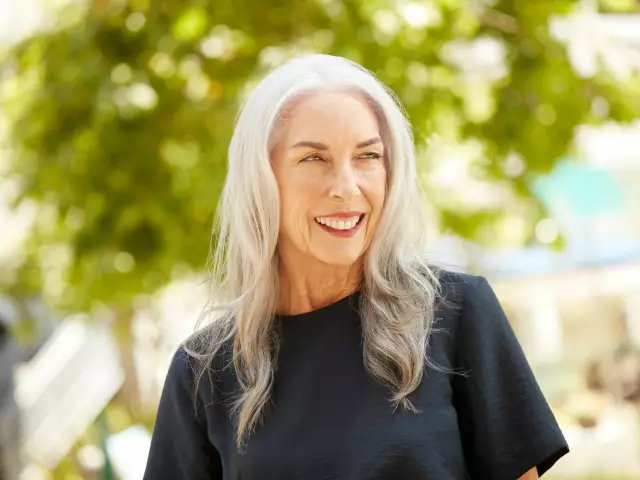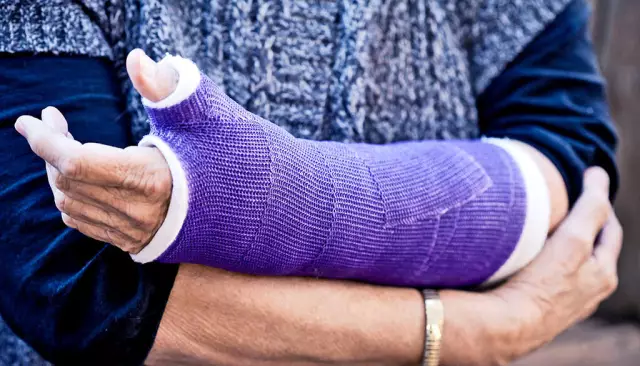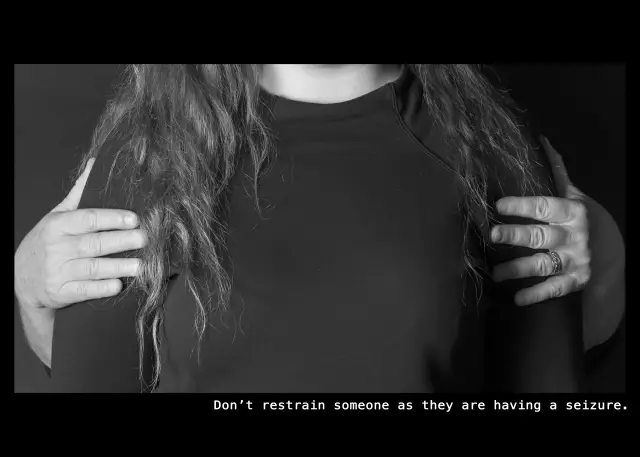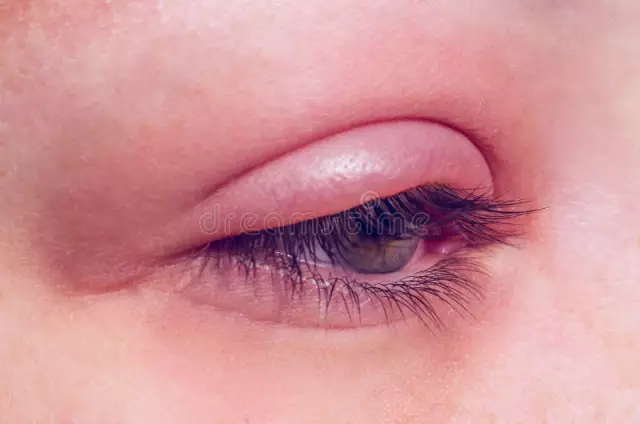- Author Rachel Wainwright wainwright@abchealthonline.com.
- Public 2023-12-15 07:39.
- Last modified 2025-11-02 20:14.
12 misconceptions about gray hair
Sooner or later, everyone's hair turns gray. Many people try to hide these changes by returning the natural color of their hair with coloring or radically changing it to create a completely new look. It is known that gray hair is a sign of approaching old age, which means that you need to get rid of it.

Source: depositphotos.com
However, most people have little idea of the causes and properties of such a phenomenon as gray hair. Today we want to dispel the most common misconceptions about this.
Gray hair is a sign of aging
It is a myth. The process of the appearance of gray hair, as a rule, has no direct connection with the aging of the body.
The pigment melanin is responsible for maintaining the natural color of the hair. Its production is impossible without another substance - the enzyme tyrosinase, which is produced by the thyroid gland. When it stops being produced, growing hair is deprived of melanin, but the timing of this event is individual. They may be due to:
- genetic characteristics of a person. In most families, early or late gray hair is inherited;
- certain diseases (for example, hyperfunction of the thyroid gland);
- deficiency of individual trace elements, usually resulting from metabolic disorders.
If you pull out a gray hair, 7 gray hairs will grow in its place
A very common statement that has no basis whatsoever. Hair grows from hair follicles, there is no reason to believe that after mechanical removal of one hair (note that this does not lead to the death of its bulb), new bulbs will appear in this place, besides giving growth to gray hair.
Apparently, the myth arose due to the fact that for many people the process of graying occurs quickly enough and there is an erroneous impression that new bleached hair in large quantities grows instead of torn hair.
Gray hair grows faster than naturally colored hair
It is impossible to assert with certainty: there are studies that both confirm and refute this statement. It may be that some people do grow gray hair faster than normal hair, but others don't depend on pigment to grow hair.
Hair becomes stronger when gray appears
Hair devoid of melanin is visually perceived to be thicker than naturally colored hair (remember - white makes you look fat). In addition, due to the peculiarities of the refraction of light, the gray hair sometimes seems thicker. But gray hair does not affect the strength of the hair: this characteristic is individual and persists throughout life.
The appearance of gray hair is a consequence of stress
This phenomenon is known, but it cannot be considered natural. On a massive scale, no direct link has been found between the appearance of gray hair and previous physical or nervous tension. Many people acquire early gray hair, living a completely prosperous life, while others, undergoing severe trials, have brightly colored hair.
Gray hair is gray
This statement is a consequence of the usual optical illusion. In fact, gray hair retains traces of melanin and therefore has a yellowish color. The intensity of the shade depends on the original hair color (more or less dark).
The appearance of gray hair is not associated with the peculiarities of metabolism
We have already talked about metabolic disorders as the cause of early gray hair. If the hair of a young person has lost melanin, this may be due to a deficiency of B vitamins, primarily pantothenic acid (vitamin B5). If you notice the appearance of discolored hair, you can try to slow down the process by enriching your diet with foods containing the missing substances. It is recommended to use meat, offal, fatty sea fish, nuts, legumes, spicy herbs and brewer's yeast as sources of pantothenic acid.
Smoking provokes early gray hair
The use of nicotine, of course, is a bad habit, it causes significant harm to human health and appearance. Smokers' hair deteriorates, as does skin, but there is no direct relationship between the appearance of gray hair and smoking.
Natural hair color can be restored without dyeing
It is not true. If early gray hair is caused by a disease, you can slow down its progression by coping with the pathology (for example, by normalizing the thyroid gland) with medication. New gray hair will stop appearing, but you cannot return the color of that part of the hair that has lost pigmentation.

Source: depositphotos.com
Gray hair increases after injury
Perhaps such a relationship exists in the long term, but the probability of completely turning gray after an injury, "overnight", is practically zero. Stories about incidents of this kind, supposedly based on real events, are in fact fictions.
Insolation provokes gray hair
Prolonged exposure to direct sunlight is harmful to the body. With regard to hair, sun exposure can make it more fragile and brittle, as well as contribute to lightening several tones (for example, a dark brown hair can fade to a brown or red color). This process has nothing to do with the complete loss of melanin and gray hair.
Gray hair rate is not related to heredity
Not true. The age at which gray hair occurs is genetically predetermined. It is interesting that the peculiarities of this process are related to gender: women, as a rule, begin to turn gray from the temporal zones of the head, and men from mustache and beard.
To hide gray hair or not is a personal matter for everyone. One thing is clear: the appearance of white hair, although associated with life experience, is not an indispensable attribute of a respectable age or worldly wisdom.
YouTube video related to the article:

Maria Kulkes Medical journalist About the author
Education: First Moscow State Medical University named after I. M. Sechenov, specialty "General Medicine".
Found a mistake in the text? Select it and press Ctrl + Enter.






